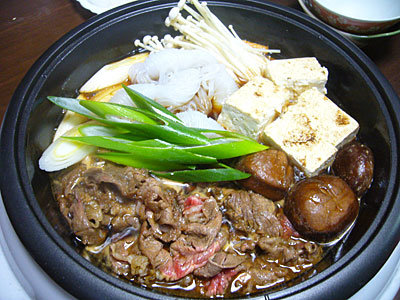Like many families in Japan, we live with my wife’s parents in a niseitai jutaku, or “two household-home,” meaning that my wife’s parents and my own family are considered two separate households that happen to live in the same house. My parents live downstairs in rooms that are traditionally Japanese, while our house upstairs is more Western, although we’ve got a nice tatami room with Okinawa-style square mats that I like to sit in while I work on my laptop. The other day I was hungry so I got a bowl and prepared to grab some of whatever my mother-in-law had on the stove for dinner, which turned out to be nikujaga, a simple stew of meat and potatoes that’s slightly more interesting than it might otherwise be due to the fact that its name sounds like Mick Jagger. My wife saw me and said, “Watch out. It’s probably really sweet since my mother made it.” Failing to see how a meat-and-potatoes stew could be “sweet,” I took a big spoonful, and darned if it wasn’t really sweet. Many Japanese dishes do call for sugar to be added, and many sauces such as teriyaki and the flavoring for sukiyaki are essentially soy sauce mixed with sugar. For this reason, the Japanese don’t really have a custom of eating dessert after a meal, since their main dish was sweet enough to satisfy them.















